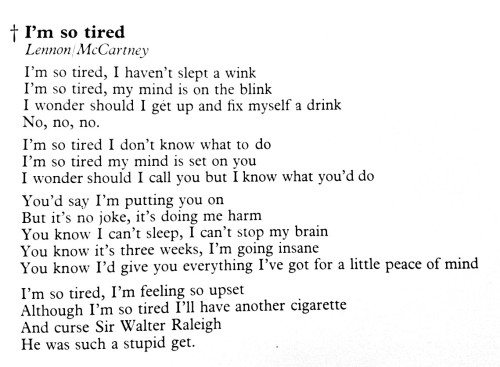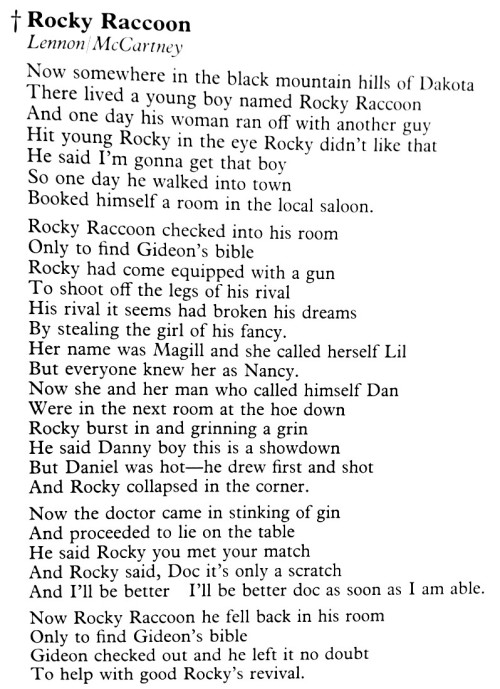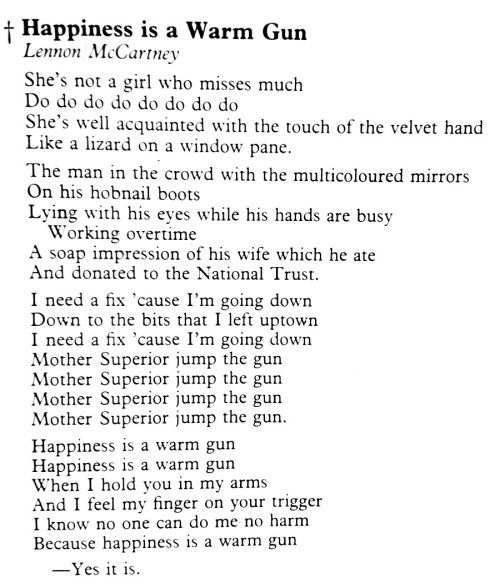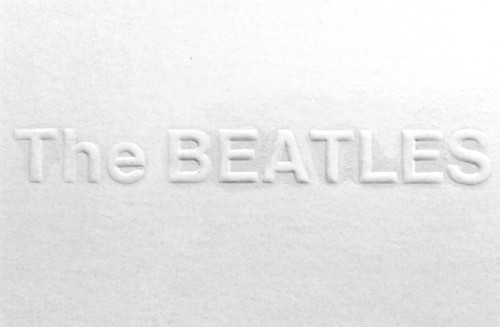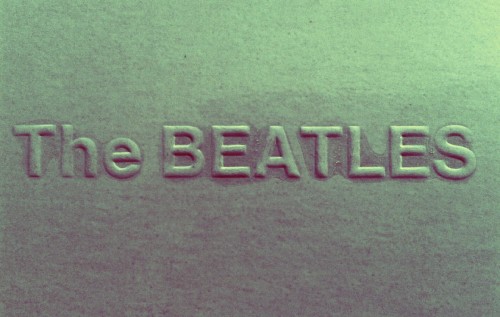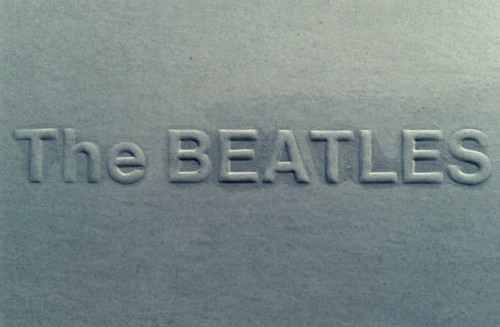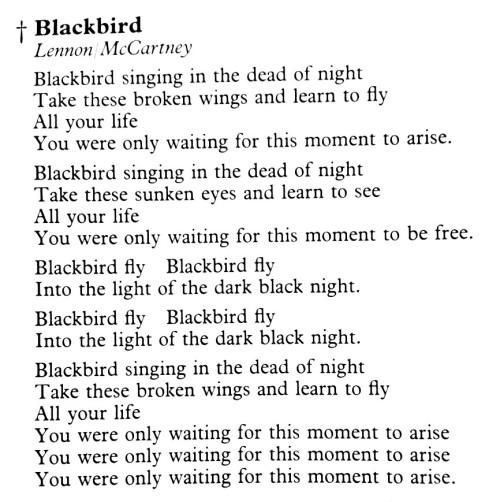#apple corps
The Beatles, White Album, John Lennon, Apple Records, 1968. Included photograph by John Kelly.
Post link
THE FALL AND FALL OF APPLE CORPS
“By 1967, the Beatles’ wealth had grown exponentially due to sold-out concerts and record royalties. Yet British income tax laws prescribed that any income greater than £2,000 would be taxed at higher rates in proportion to the total amount of income. In an attempt to liberate the Beatles from their tax burden, the band’s accountant Harry Pinsker advised that setting up a new company would help offset their tax liability.
Pinsker served as the Beatles’ accountant as soon as they signed Brian Epstein on as their manager in 1962. For years Pinsker utilized his expertise to conserve the band’s assets and, more importantly, to protect the boys from their profligacy. The evasive tax maneuver Pinsker suggested in 1967 had the Beatles reinvest their earnings in a business; this way, instead of being subjected to income tax, their earnings were filtered through a business and thus only subject to corporation tax, which was much lower. Using this strategy, Lennon, McCartney, Harrison, and Starr could even reclaim their personal expenses by disguising them as company expenses. When asked about his role in the creation of Apple Corps years later, Pinsker simply stated that the company was just a way to help four “scruffy boys who didn’t want to pay tax.”
Under Pinsker’s counsel, Epstein laid the foundations of a new Beatles company in April 1967. Originally named The Beatles & Company, the new enterprise was designed to be governed by each of the Beatles and Epstein. In theory, The Beatles & Company was poised to serve its purpose and save the band’s income from British taxes. However, the sudden death of Epstein on August 27, 1967, quickly skewed any chance of the new Beatles company serving its original purpose.
[…]
By the time Epstein fulfilled his promise [to turn the Beatles into a worldwide phenomenon] and the Beatles had their first string of number one hits, they placed so much faith in Epstein that Lennon, McCartney, Harrison, and Starr signed off on whatever contracts he slid under their pens without even reading them. This trusting relationship eventually morphed into a dangerous dependence as the band’s career progressed. The boys’ tendency to sign first, read never, increasingly isolated them from the sensitive business aspects of their band. So when Pinsker proposed that the Beatles form a company to manage their finances and counteract their hefty income tax, Epstein took care of the details as usual. Epstein’s tragic overdose in the midst of plans for The Beatles & Company immediately postponed its opening and, on a larger scale, left the band without any business guidance. Lennon, McCartney, Harrison, and Starr were now without the insulation that Epstein provided from the ravenous entertainment industry. Perhaps even more dangerous, the Fab Four had no one to say “no” to their self- proclaimed great ideas.
A few months after Epstein’s death, the Beatles revisited the idea of opening their own company, but this time no idea was a bad idea. The Beatles & Company was renamed Apple Corps, and the company’s fields of interest were significantly expanded beyond their original scope. Without Epstein to reign in the Beatles’ non-stop creativity, every new avenue they could think of was brought to life through Apple Corps, and the original intent of offsetting taxes slowly diminished. This led to the creation of divisions within Apple Corps that the Beatles had no practical experience in, including Apple Tailoring, Apple Retail, and Apple Electronics. The electronics division was by far the most expensive and simultaneously least profitable investment within Apple Corps. Alexis Mardas, or “Magic Alex” as Lennon nicknamed him, was placed in charge of inventions in Apple Electronics.
[…]
Clearly part of the appeal of investing in Apple Electronics was the optimism surrounding the growth of electronics and technology in general. But unfortunately for the Beatles’ money, advancements in these fields could only be brought about by someone competent enough to do so; Mardas certainly was not that someone. By the time his involvement with Apple Corps came to an end in 1969, his subpar inventions made no headway in the electronics market but still cost the Beatles over £300,000 (the modern day equivalent of approximately £3,000,000). Yet the financial losses at Apple Electronics proved only to be the tip of a very expensive iceberg.
First-hand accounts of former Apple Corps employees, including secretaries, accountants, and assistants, all construct a singular, clear picture of what Apple Corps managed to accomplish upon opening: nothing. The company’s inability to answer fundamental questions – who are we, what are we doing, and where is this all headed? – meant that its employees went into work every day directionless and failed to accomplish anything significant for the company. For instance, in the 2017 Apple Corps documentary The Beatles, Hippies, and Hell’s Angels by Ben Lewis, a former secretary of Apple Corps recalled seeing a man at work every single day that sat atop a filing cabinet doodling pictures of penises until it was time for all the employees to leave. Fortunately, whoever this Michelangelo was, his work ethic made him an outlier amongst the other Apple Corps employees, but what they did from day to day did not necessarily offer significant contributions either.
A typical day at Apple Corps began with chardonnay and cigarettes being served to secretaries and “Apple scruffs” by girls who would wait in reception at Apple Corps to get even a glimpse of the Beatles. When it came time for lunch, enough drugs would go around to ensure that everybody in the office was at least glassy eyed. As if drugs and alcohol being used during the workday was not bad enough, Apple Corps paid for the alcohol, which meant that Lennon, McCartney, Harrison, and Starr were personally paying the massive £600 liquor bill each month. On top of these party favors, employees spent hundreds of thousands of pounds on almost a monthly basis decorating their offices and the building with extravagant, overly ornate furniture. Even Neil Aspinall, the Beatles’ former road manager turned head of Apple Corps, thought it was entertaining to go overboard furnishing the boys’ offices and purchased four enormous “gold hand-tooled, leather top” chairs for them. But the unnecessary expenditures did not stop at just alcohol and furniture; unauthorized flights from London to Paris and America, coupled with international phone calls dialed by non-employees that just wandered into the building, all contributed to the chaos of Apple. The phone calls got so out of control at one point that Apple Corps was billed £4,000 for a single month. These mammoth costs were left unchecked for months. As a result, the company was hemorrhaging money from every angle possible, and because its profits were essentially non-existent, these costs were paid month after month by the Beatles, with no profits from the company to compensate them. By September 1968, things were so chaotic at Apple Corps that its chief financial advisor resigned, stating in his resignation letter that his departure was due to the “slipshod manner in which the company was being managed.” Soon after, the company’s second and only remaining accountant also put in his notice, writing: “your personal finances are in a mess. Apple is a mess.””
–“When the Beatles Played Businessmen: The Story of Apple Records.” Welcome to The Beatles, by Jason Arquette (2018)


